
Electronics and communication engineering is like having a big menu with many choices for your career. There are a lot of electronics and communication engineering jobs. This field covers radio, internet, satellites, and wireless phones. You learn to make these things and study, analyse, and improve how you already communicate using them.
What are Opportunities for Electronics and Communication Engineers?
According to The Bureau of Labour Statistics, ECE engineers will have a 7 percent year-on-year demand. The recruitment figures will reach over 345,800 by 2026, which is a massive number and a reason enough for aspiring engineers to pursue a career in ECE.
Let’s look at some of the best electronics and communication engineering jobs.
Role as Wireless Communications Engineer
After graduating, one of the best career options is to be a Wireless Communication Engineer. As Wireless Communication Engineers, you create, set up, and care for wireless communication systems. They ensure wireless connections work well and are dependable for different uses and businesses. They deal with technologies like mobile networks, Wi-Fi, Bluetooth, satellite communications, and so on.
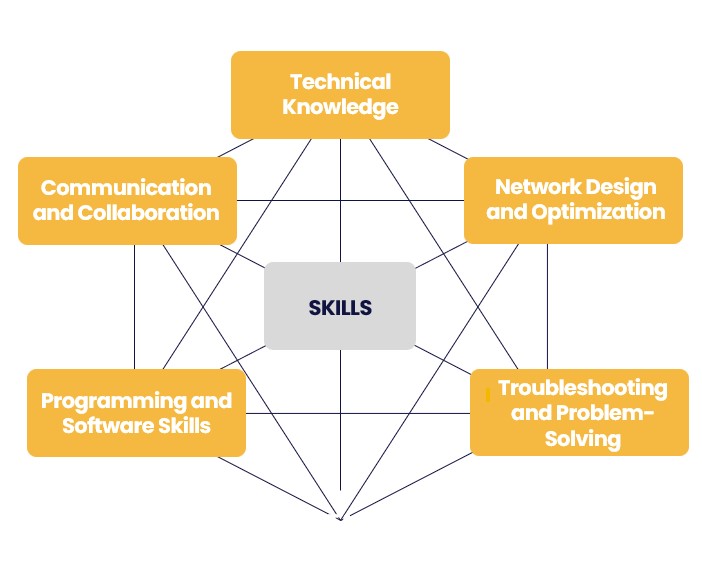
Wireless Communications Engineer Salary
The salary for a Wireless Network Engineer in India varies from ₹1.7 Lakhs to ₹13.5 Lakhs, with an average annual salary of ₹5.0 Lakhs.*
*Source - Ambitionbox
Role as Hardware Engineer
Hardware Engineers are the ones who plan, create, and check the parts and systems that make computers run. This makes it an interesting career option. They concentrate on computer systems, built-in systems, and electronic gadgets, getting involved in making hardware, like designing circuits, arranging circuit boards, making prototypes, testing, and fixing issues.
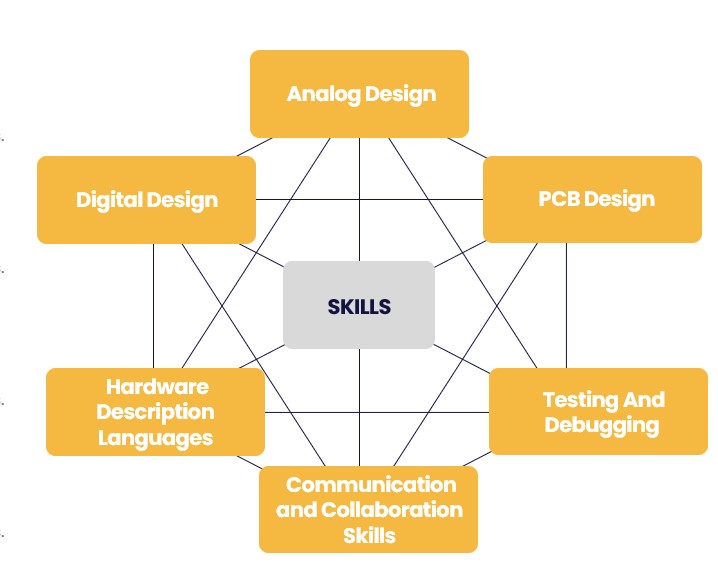
Hardware Engineer Salary
The salary for a Hardware Engineer in India ranges from ₹0.8 Lakhs to ₹12.9 Lakhs, with an average annual salary of ₹6.9 Lakhs.
*Source - Ambitionbox
Role as Telecom Engineer
A Telecom Engineer manages the analysis and design of new technologies to benefit customers and researches ongoing services to improve facilities. Telecom is crucial in almost every industry globally, making it a highly sought-after field known for its reliability in the years to come.
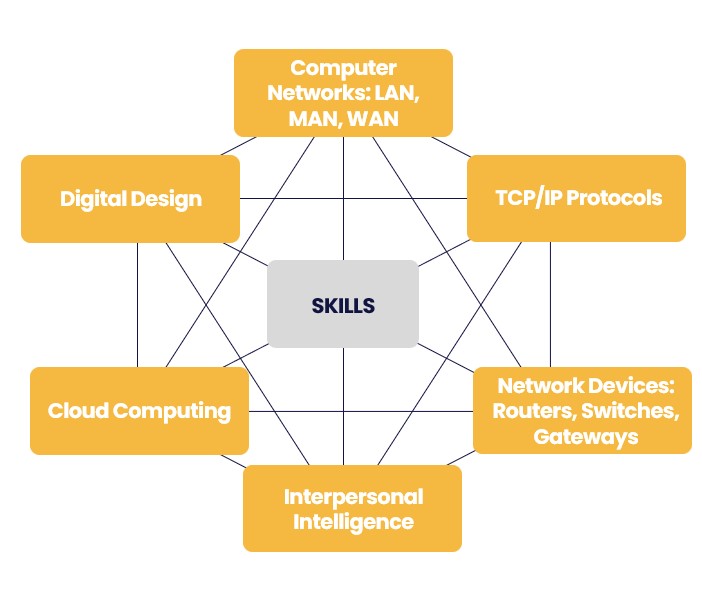
Telecom Engineer Salary
The salary for a Telecommunication Engineer in India ranges from ₹1.2 Lakhs to ₹15.0 Lakhs, with an average annual salary of ₹4.6 Lakhs.
*Source - Ambitionbox
Role as Software Analyst
A software analyst's role involves running, designing, creating, and testing new and existing software for an organization. This includes acting as a mediator between software users and developers. The primary responsibility is to adapt the software's algorithms to meet customer requirements and continually update or modify them for enhanced user-friendliness. Individuals in this role may explore career options in project management, quality assurance, or system architecture, leveraging their expertise in software analysis to contribute to various aspects of the software development lifecycle.
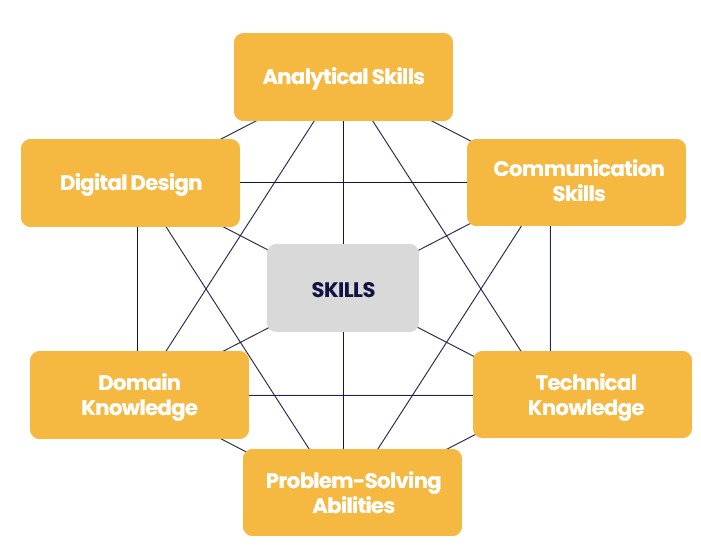
Software Analyst Salary
The salary for a Software Analyst in India varies from ₹2.5 Lakhs to ₹12.0 Lakhs, with an average annual salary of ₹6.8 Lakhs.
*Source - Ambitionbox
Role as Robotics Engineer
Robotics engineers are responsible for designing, developing, and taking care of robotic systems. They combine mechanical engineering, electrical engineering, computer science, and artificial intelligence principles to create smart machines.
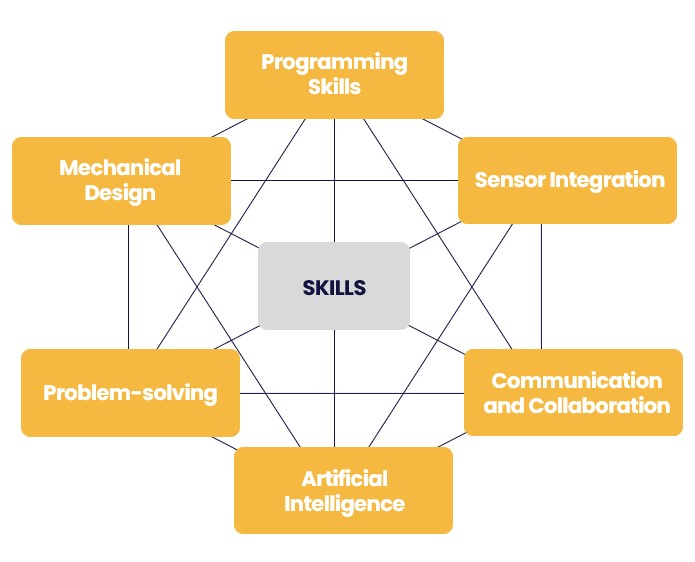
Robotics Engineer Salary
Robotics engineering salary in India ranges from ₹1.8 Lakhs to ₹8.2 Lakhs, with an average annual salary of ₹3.8 Lakhs.
*Source - Ambitionbox
Job Opportunities for Electronics and Communication Engineers in the Government Sector
Public service companies recruit electronics and communication engineers based on written examinations, GPAs, and skills. The standard job profile is that of a technician, and the organisations that hire include BSNL, MTNL, ISRO, DRO, and ONGC, among others. Electronics engineers can also find jobs in financial services, such as banking, as technicians or junior engineers. Look for jobs in government colleges and universities where you can teach or research. After finishing this degree, you can do either an M.Tech or an MBA after your B.Tech. This will increase your chances of getting a job.
Top Companies Hiring Electronics Engineering Graduates in India
What are the other options to explore after Electronics and Communication Engineering?
Higher Education
Going for higher studies will make it easier for you to climb the success ladder. Not only will you become more qualified, but the chances of getting good jobs after they finish studying will also be high. There are many fields where students can land good jobs. They include
Qualification Criteria
Students should have a bachelor's degree in electronics and communication engineering, electronics and instrumentation, or electrical engineering. They should also have scored at least 60% marks and have a valid GATE score.
Career Opportunities after Higher Studies in Electronics and Communication
Students can find job opportunities in both private and government sectors. Candidates must appear for UPSC or PSC entrance exams to secure a government job. UPSC conducts this exam annually, while other PSCs have their exams to fill job vacancies. Information about these exams is published in leading newspapers. Some potential employers for Electronics and Communications graduates include:
People with a master's degree in this field can start their own businesses, like electronic stores or repair/assembly shops. Electronics is crucial in today's industry, so the profit is likely to be more than the cost. Banks and small-scale industrial development corporations are willing to provide financial assistance to those who want to kickstart their own businesses.
Certification Courses
After completing a BTech, certification programs offer an excellent opportunity to enhance skills and boost your career quickly. These programs require less time and are more cost-effective than alternative study options. A typical certification program usually ranges from nine months to 1.5 years.
Some of the certifications you can go for are:
Conclusion
There are many Job Opportunities for Electronics and Communication Engineers in India. If you study ECE, you can choose from various careers like working with wireless communication, handling hardware, being a telecom engineer, software analyst, or even a robotics engineer. The opportunities to specialize and grow in this field are plenty. ECE graduates are ready to face the industry's challenges because they have the right skills. As technology improves, the need for skilled ECE professionals is increasing, making it a promising and exciting field for those who love innovation.
Every year, thousands of students and their parents go through the same process - of deciding which branch of engineering they should select. A lot of anxiety and lots of advice and advisors. The more you talk to the more is the confusion. Most of the people select branches which are hot from the perception game. It is tough for anyone to decide what branch to select? What are the career prospects out there? Will the degree be worth it, and will it eventually help you get a good job?
And many make the most common and costly mistake: following the herd.
You start your degree course and by the time you're in the second year, you realise this wasn’t the right fit for you. Too late! You feel you'd wasted the degree and the golden years which you could have spent somewhere else.
So, here, I’m going to tell you about a branch, very few really know about and why you should consider it as a worthy choice. It attracts countless international students annually. It promises the best of Engineering and Business. It gives you skills in the design, planning and optimisation of production and manufacturing processes. That’s the Industrial Engineering Bachelor’s degree.
The name ‘Industrial Engineer’ (IE) doesn’t really help to explain what it is. Many people have little or no idea of what it is, and the types of work industrial engineers do on a daily basis.
Industrial engineers determine the most effective ways to use the basic resources — people, machines, materials, space, information, and energy—to make a product or provide a service.
Industrial engineering is the study of the optimisation of complex processes or systems. They study the design, planning and optimisation of production and manufacturing processes as well as processes in service industries.
In addition to the preparation for immediate employment as a practising industrial engineer, the IE degree provides an excellent foundation for further study. This includes masters-level work in manufacturing fields for which a technical base is desirable. Other opportunities exist for further study in IT and management, where the combination of industrial engineering skills is uniquely valuable.
The field of industrial engineering has long been recognised as a prime source of management talent. Today’s competitive world needs managers and decision-makers who can apply mathematical concepts and scientific management techniques to the technical problems that arise. An industrial engineer not only understands these problems but is able to devise and implement methods to solve them.
Studying Industrial Engineering is flexible - you can pursue a more technical or a more management-oriented path, customising your approach to Industrial Engineering.
• Industrial Engineers Work in every sector: you will find Industrial Engineers at most companies and in many sectors. This means that you will find a job easily after graduation.
• Technical skills and business knowledge: They also study business management subjects as part of their industrial engineering programmes. You will gain a good grasp of the business side of a company.
• Focus on processes: Industrial engineering is more focused on processes and finding ways to improve processes through strategies such as cost reduction, savings and reducing timings.
• Apply data Analytics: Big data is a growing field and most companies want to make better business decisions by making use of complex chunks of data. Industrial engineering provides you with the foundations for working in this domain.
• Determining the best location of machines in a factory, or ambulance stations in a metropolitan area, or a new factory in the U.S., based on economic and operational considerations; designing computer-aided process planning systems that flexibly vary the sequence of operations to produce a product
• Determining which types of jobs are most suitable for special populations of workers, such as the elderly and the handicapped
• Developing a system for controlling the inventory levels of a product in a warehouse, books in a bookstore, or gasoline at a service station
• Designing automated material handling systems for the movement of parts in a factory
• Designing a mission management plan for payload specialists on the NASA space shuttle
• Designing computer-integrated manufacturing systems and decision support systems for integrating information and control between manufacturing systems, automated guided vehicles, automated warehouse facilities, and management personnel
• Designing a new plan for scheduling cases to operating rooms in a hospital, or production orders in a factory
• Determining the optimal routing of ambulances through a city, or material handling vehicles in a factory, to minimise travel time
• Developing reliability and quality management systems to ensure that a manufactured product is free from defects
• Developing programs for analysing human reliability to assess workplace safety
• Designing computer graphics systems to assist operators in the monitoring and control of industrial processes
• A B.Tech degree in industrial engineering from VIT leads to fascinating careers in industries as diverse as automotive manufacturing, Logistics, transport, airline operations, and financial services. As an IE graduate, you’ll have maximum
flexibility to pursue your goals for advancement in management as well as systems design.
• Industrial engineering is an expanding profession because industrial engineers’ work can help with cost control by increasing efficiency, these engineers are attractive to employers in most industries, including nonprofits.
• Because they are not too specialised as other engineers, industrial engineers are employed in a wide range of industries, including major manufacturing industries, hospitals, consulting and engineering services, and research and development
firms.
• This versatility arises from the fact that these engineers’ expertise focuses on reducing internal costs, making their work valuable for many industries. For example, their work is important for manufacturing industries considering relocation to
domestic sites.
• In addition, growth in health care and changes in how care is delivered will create demand for industrial engineers. Firms in a variety of industries are seeking new ways to contain costs and improve efficiency, leading to more demand for these
workers.
As a VIT industrial engineer, you will always have options to explore and work in different job roles. We provide many elective subjects as per your interests and the area you’re passionate about.
• Want to sit at a computer doing deep data analysis? There are industrial engineering jobs in data analysis and business analysis.
• Want to work on a production floor doing manufacturing work? There are jobs in logistics engineering, manufacturing engineering, production, forecasting, among many others.
• Want to travel while you work? Consider industrial engineering jobs in consulting and client-facing roles. There are plenty of other options – these are just a few examples.
Some prospective careers that await you are :
• Service industries
• Logistics providers
• Manufacturing industries
• Consulting, IT and engineering services
• Research and development firms
• Wholesale trade
So, excited about it now ? Want to know more ? Contact us at This email address is being protected from spambots. You need JavaScript enabled to view it.. You’ll get all your answers.
666, Upper Indiranagar, Bibwewadi,
Pune, Maharashtra, INDIA - 411 037.
For Admission :- 91 - 7058432258 / 8793428634
For Admission :- Office Timing :-
Monday to Friday - 10am to 5 pm